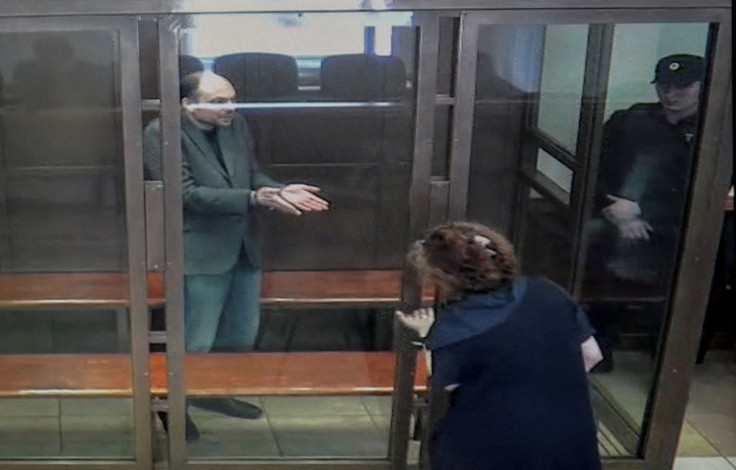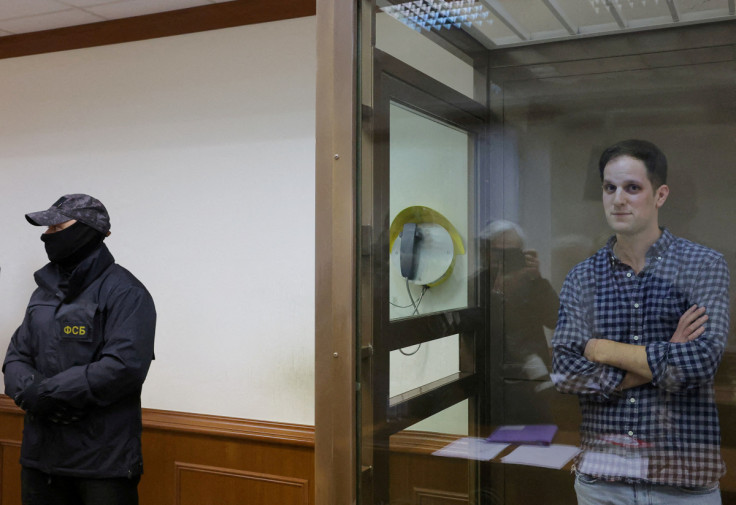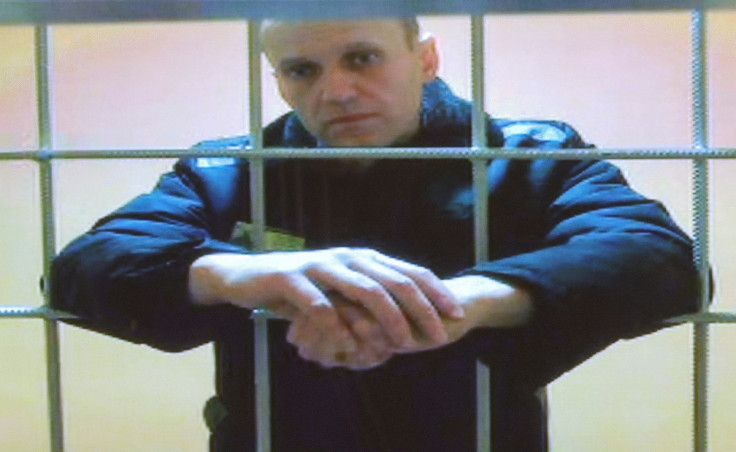Analysis-Russia Crosses New Lines In Crackdown On Putin's Enemies

With virtually all the Kremlin's opponents already jailed or in exile, and liberal press outlets and human rights groups forced to shut down, it might have appeared that years of repression in Russia had achieved their objective.
But in the space of just three weeks, Russia's security services and courts have crossed several new thresholds in their campaign to destroy perceived enemies, spies and traitors.
The March 29 arrest of Wall Street Journal reporter Evan Gershkovich sent a chilling warning to the few remaining Western journalists in Russia about the risks of travelling, talking to sources and simply doing their jobs.
The last time Moscow had held an American journalist for alleged espionage - a charge that Gershkovich, his paper and he U.S. government all strongly reject - was 1986, when the country was still under Soviet communist rule.
Then on Monday, opposition politician Vladimir Kara-Murza was jailed for treason and spreading "false information" about Russia's war in Ukraine. His 25-year sentence was three times longer than any previously imposed for speaking out against the Russian invasion.
The following day, supporters of Alexei Navalny, the most prominent critic of President Vladimir Putin who is serving 11-1/2 years for alleged fraud and contempt of court, said he had been beaten by prison guards for the first time and faced new charges carrying five more years for thwarting prison authorities.
The Kremlin says it has no say over court decisions and Navalny's treatment is a matter for the prison service. Putin has told Russians that the West is seeking to use traitors as a "fifth column" to sow discord and ultimately destroy Russia.
Since mid-March, Russia's parliament has also broadened censorship laws on what people can say about its armed forces and voted to extend the punishment for treason to life imprisonment instead of 20 years.
The father of a Russian girl who drew an anti-war picture was sentenced to two years in prison and detained in neighbouring Belarus when he attempted to flee. This week another opposition politician, Ilya Yashin, lost his appeal against an 8-1/2 year sentence for spreading "false information" about the armed forces.
"There is a move towards a real kind of totalitarian regime. It was perceivable already one year and a half ago but now it's become full-scale," said Nicolas Tenzer, senior fellow at the Center for European Policy Analysis and a personal friend of Kara-Murza.
ARREST WARRANT
The trend has accelerated since March 17, when Putin was accused of war crimes by the International Criminal Court. Though dismissed by Russia as legally void, given it is not a member of the ICC, the arrest warrant highlighted the fact that Putin has no way back - and therefore nothing to lose - when it comes to relations with the West.
"It seems that Putin really doesn't care about what the West is thinking... He just wants to go all-out in his repression and in his war," Tenzer said in a telephone interview.
Maria Alyokhina, a member of the Pussy Riot feminist punk group who spent nearly two years in a Russian penal colony for protesting against the Kremlin, described the treatment of Navalny and Kara-Murza as "pure sadism" on the part of Putin and the authorities.
"They are in a war and they're losing the war. And they're mad about that. They are taking revenge, out of powerlessness, out of fear, of fury, the combination of all these things. I don't think in that sense they will stop," she told Reuters.
"You probably think it could not be worse, but it can."
'THEY ARE KILLING HIM'
The fear among supporters of Navalny and Kara-Murza - both in poor health after surviving past poisoning attempts that they blame on the security services but which the Kremlin denies - is that they might not survive their long jail terms.
Navalny's allies said last week he had suffered sudden weight loss and acute stomach pain that made them suspect another attempt at slow poisoning.
"They are killing Navalny in prison," said his associate Maria Pevchikh. Russia's prison service did not reply to a request for comment.
Tenzer said the death of either Kara-Murza or Navalny would provoke expressions of outrage but Putin might calculate there is nothing more the West could do in response, given it has already imposed waves of sanctions on Moscow and is arming its enemy, Ukraine.
The Kremlin may derive short-term gains from its treatment of both Gershkovich and the jailed Russians. Recent experience suggests the American may be traded in a prisoner exchange, once his case has gone through the courts, while the cases of Navalny and Kara-Murza serve to neutralise Putin's best known enemies and deter others from speaking out.
But there may be longer-term risks in creating powerful symbols or even martyrs for the opposition.
Putin's position is not now under threat but history is not short of examples of former political detainees - from Vaclav Havel in Czechoslovakia and Nelson Mandela in South Africa to Chile's Michelle Bachelet - who have swapped prison for the presidency. Nationwide protests swept Iran after the death of a 22-year-old woman, Mahsa Amini, in the custody of the country's morality police last September.
"Every dictatorial regime believes itself to be invincible, and yet every dictatorial regime falls in the end," Kara-Murza's wife Evgenia said after his sentencing on Monday.



© Copyright Thomson Reuters 2024. All rights reserved.





















